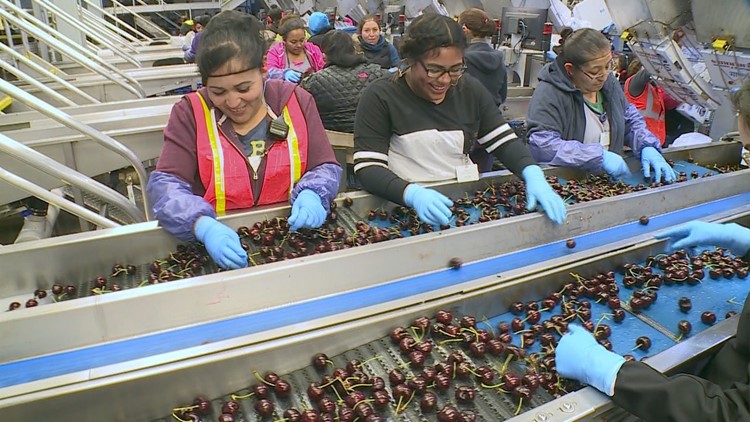China has a growing appetite for Washington cherries, apples, and wine -- all products on a list of new tariffs meant to push back against a U.S. tariff hike.
“We are afraid it could impact our sales to China this year,” said Keith Hu, director of international relations for Northwest Cherry Growers, an industry group.
They started enticing the Chinese about a decade ago, growing that export market from nothing, Hu said. Today it's worth $140 million.
There are now entire processing lines dedicated to Asian markets. China Eastern Airlines even flies a “cherry express” freighter jet from Sea-Tac Airport during the harvest season. New 15 percent tariffs will likely mean higher prices for Chinese consumers, who may lose their appetite for more expensive fruit.
“I spoke to retailers in China, I spoke to our business partners in China, their thoughts are they have to pass down the price increase to the consumers, and (as a) result, we all could see a decrease in sales,” Hu said.
China is Washington's largest trade partner, eating up about a quarter of the goods it exports each year, according to the Washington Council on International Trade.
Washington sold China $1.16 million worth of wine in the 2017 fiscal year, up nearly 30 percent from the previous year according to the Washington State Wine Commission.
“We plan on continuing to try and compete in the Chinese market, but we are very concerned about what these tariffs and trade relations will do to Washington state wines’ ability to compete,” Josh McDonald, executive director of the Washington Wine Institute, an industry group, said in a statement.
About 1 percent of apples harvested in Washington end up in China, the Northwest Horticultural Council said, and the industry sees the country as an expansion opportunity.
With so much at stake, many growers are watching closely, wary of what might happen next.
“Right now the strategy is to stay low key, and then we’ll see where it goes,” Hu said.



